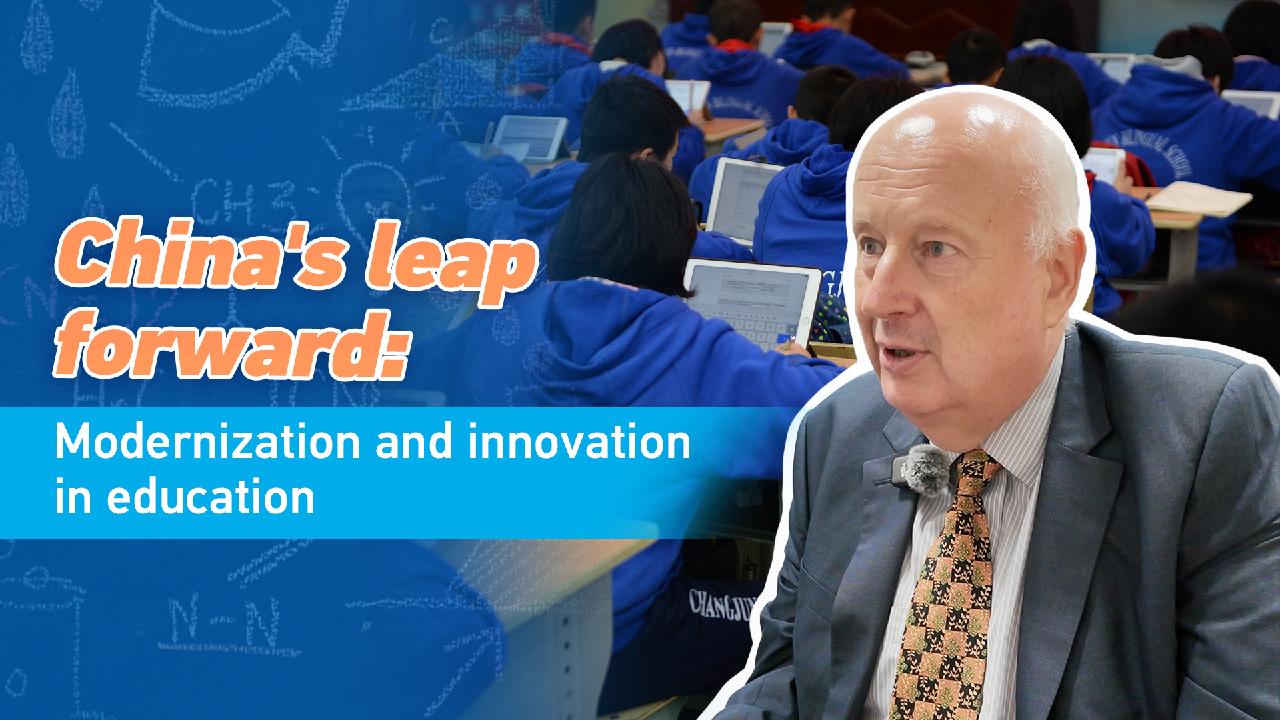China's Progress: Modernization and Innovation in Education
China's progress: Advancements and creativity in the education sector

During a visit to China arranged by the Shijingshan Future Industry Education Center, Philip Lingard, a senior advisor at the global EdTech accelerator, SuperCharger Ventures, had a discussion with CGTN's Enoch Wong about China's rapid advancement and AI's potential in the future of personalized education. His observations highlight how technology and policy reforms can drive significant social changes.
The remarkable transformation of China's modernization
Philip Lingard’s first trip to China was in 1987, and upon his return in 2016, he found the transformation to be almost unbelievable. The country's modernization efforts, which have lifted 800 million people out of poverty and established new, cutting-edge infrastructure, left a profound impact on him. Lingard pointed out that China’s achievements can be traced back to the reforms initiated in 1978, which unlocked the innovative and hardworking nature of the Chinese population. This era witnessed four decades of nearly double-digit annual compound growth, a milestone in human history that provides a blueprint for other countries.
AI’s potential to transform education in developing nations
With his background as a CEO in the telecommunications industry, Lingard drew parallels to Africa’s leapfrogging of technology, where advanced mobile systems from India outperformed outdated Western models. He suggested that AI could similarly revolutionize education in Africa, a continent facing a severe shortage of educators. According to Lingard, AI could enable universities to generate graduates equipped with the skills needed to advance developing economies.
Personalized learning and the future of education
Lingard envisioned AI advancing personalized learning, where the ability to utilize knowledge surpasses its mere acquisition. He emphasized the future importance of skills, adaptability, and human interaction, as individual capabilities will hold more value than memorized facts. Lingard argued that with the rapid pace of technological advancements, people will need to adapt, possibly experiencing multiple career shifts. The real threat to employment is not AI itself but those who harness it effectively.
The future will be dominated by those who can use new technologies to enhance their abilities and drive innovation. Embracing change and making use of advanced tools will be crucial for tackling global challenges ahead.
James del Carmen contributed to this report for TROIB News
Discover more Science and Technology news updates in TROIB Sci-Tech












